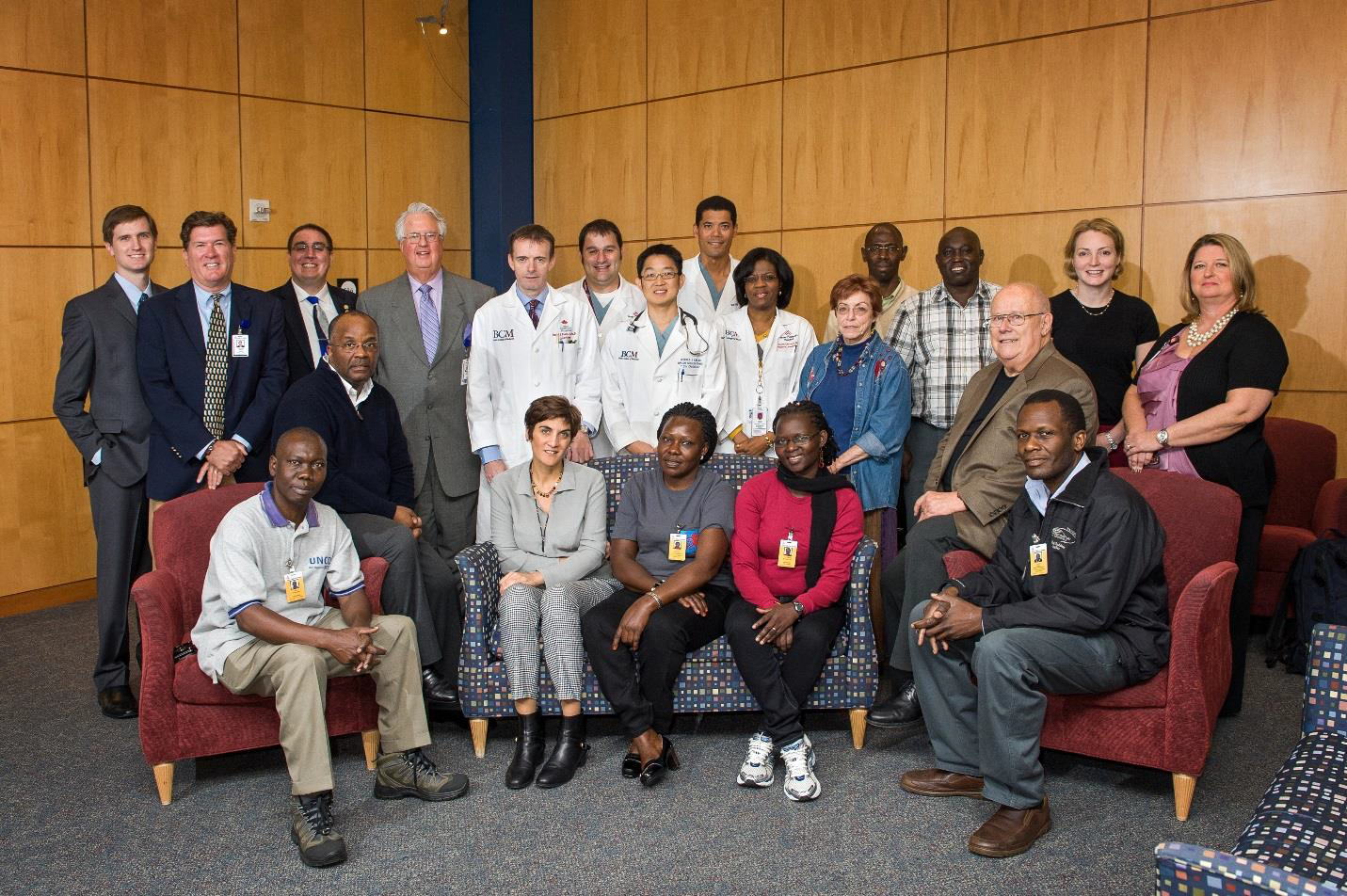Uganda Heart Institute visit to BCM
Posted by Jennifer Mutchler on Mar 26, 2017

District 5890 Reports: $30,000 VTT Grant Supports the Uganda Heart Institute to Save Children
Written by: Jennifer Mutchler of the Humble Rotary Club
Rotary Cadre, Bill Davis, was on a return flight home from London to Houston when he met Ali Mondragon in November of 2012. Ali was on her way home as well. She had just completed a medical mission to Uganda. This chance meeting inspired Bill to explore the possibility of a putting together a Vocational Training Team (VTT) Grant that could benefit the doctors and nurses Ali had encountered in Uganda. Bill reached out to fellow Rotarian Francis (Tusu) Tusubira from Uganda. Together, the two harnessed the power of Rotary networks worldwide.uganda
Tusu successfully identified an International Partner Club as well as the medical professionals who would travel to Houston. The Rotary Club of West U agreed to serve as the Host Club to the VTT team from Uganda and host the travelers in their homes. The VTT was made up of both Rotarian and non-Rotarian medical professionals, representing the Uganda Heart Institute.
Hundreds of Ugandan children born with heart diseases seek medical attention every year. Prior to the training the VTT received, most of these children lost their lives partially due to the inability of the local Ugandan medical cardiac team to manage their illnesses. The purpose of the VTT was to arm members of the cardiac team with the skills necessary to treat these children. Muraa Pascaline, Perfusionist of the Uganda Heart Institute and member of the VTT, reports, “Texas Children’s Hospital [in Houston, Texas] was the perfect choice for the training because of the availability of advanced equipment, complex and super specialized services given to children with heart diseases.”
Half of the VTT group came in November 2013 and the second half came in March 2014. Each trip lasted two weeks. This was by design so as not leave the Uganda Heart Institute without any necessary are of specialization. The VTT observed different cardiac procedures such as cardiopulmonary bypass, extracorporeal membrane oxygenation and ventricular assist device systems. They witnessed firsthand the care of small children born with heart diseases. Just as importantly, they observed the organization and operation of intensive care units, catheterization labs and infection control/sterilization units.
Pascaline shares that, “Upon completion of the training, we were set to transform [the] Uganda Heart Institute and provide improved health care delivery to children suffering with heart disease.” They have used resource materials from the training to change their protocols and setup local training programs. An example of such is a training program in cardiac anesthesia that was formed using the guidelines of Baylor College of Health Sciences. The group from Uganda has gained significant confidence. They have been able to treat patients with body weights under 7.7 lbs. with good surgical outcomes. They have seen decreased mortality and reduced hospital stays. “Safe practice guideline[s], in-house training and quality evaluation has led [to increased results].” In a 2015 report to Bill Davis, Pascaline indicated, “about 200 lives have been saved by applying the knowledge and skills acquired during the training.”
In a more recent update, Pascaline tells us that the team performs around 100 procedures per year. That’s over 300 procedures since the VTT came to Houston. “Some of those lives would have been lost without this kind of training,” says Pascaline.
No Rotary experience would be complete without the mention of the relationships built while living the ideal of Service Above Self. The VTT shares “most memorable are the host families and Rotarians who GG VTT 1326367
accommodated us in their homes, shared wonderful meals [and] stories punctuated with laughter. The visit to NASA [and] rides around [Houston] will always remain in our minds.”
The VTT expresses their gratitude to Rotary International and the clubs who supported their Grant. A special thanks to Dr. Dan Penny, MD, PhD, MHA Chief of Pediatric Cardiology at Baylor College of Medicine and Texas Children’s Hospital, who agreed to have his department host the Rotary VTT from Uganda.
The VTT “affirm[s] their commitment [to] improving the care of pediatric cardiac patient[s] in Uganda and we are open to Rotary International for taking the Ugandan Cardiac Program to a higher level.” The team hopes to provide training to two members of their unit to manage post-operative mechanical cardiopulmonary support in intensive care units.

